Contents
- 1 Acts of Service by Lillian Fishman
- 2 The Bees by Laline Paull
- 3 The Book of Night Women by Marlon James
- 4 Evicted by Matthew Desmond
- 5 Fleishman Is in Trouble by Taffy Brodesser-Akner
- 6 Free: Coming of Age at the End of History by Lea Ypi
- 7 Help Wanted by Adelle Waldman
- 8 How I Won a Nobel Prize by Julius Taranto
- 9 How to Talk About Books You Haven’t Read by Pierre Bayard
- 10 Invisible Child by Andrea Elliott
- 11 The Invisible Life of Addie LaRue by V. E. Schwab
- 12 Little Library cookbooks by Kate Young
- 13 Loved and Missed by Susie Boyt
- 14 The Master and Margarita by Mikhail Bulgakov
- 15 Middlemarch by George Eliot
- 16 A Month in the Country by J.L. Carr
- 17 Random Family by Adrien Nicole LeBlanc
- 18 Say Nothing by Patrick Radden Keefe
- 19 Six Four by Hideo Yokoyama
- 20 Strangers to Ourselves: Unsettled Minds and the Stories That Make Us by Rachel Aviv
- 21 Super Infinite by Katherine Rundell
- 22 Tomorrow, and Tomorrow, and Tomorrow by Gabrielle Zevin
- 23 The Vegetarian by Han Kang
- 24 A Woman in the Polar Night by Christiane Ritter
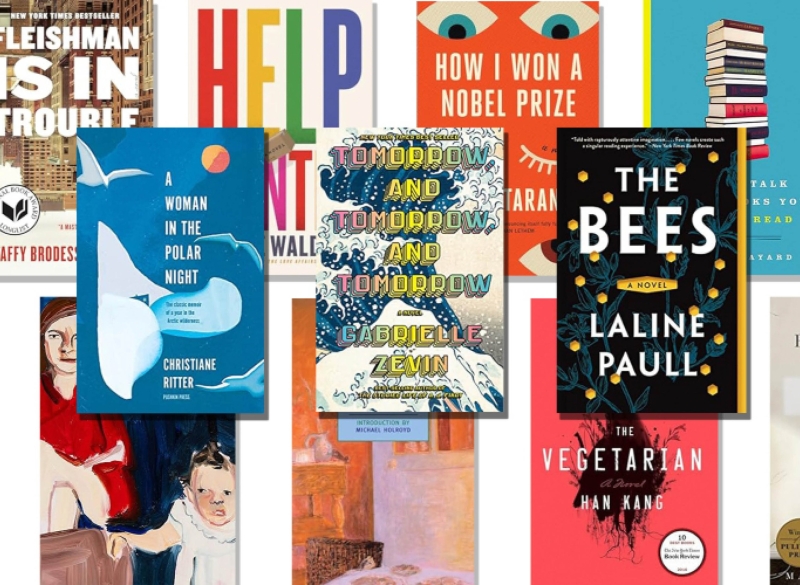
We may earn a commission if you buy something from any affiliate links on our site.
There are competing theories about how to pick the best book club book. When I nobly started a book club in my early 20s, I had grand ambitions of filling in the holes in my undergrad education. I think we started with Confessions of Zeno. Years later, I joined what had been dubbed the “high-low club,” a group that used the gathering as an excuse to read some of the mass-market fiction that was dominating the bestseller lists. I think the first book that group read was Fifty Shades of Grey. A decade later, that’s the group I still meet with every month, and it’s solidified allegiances with some people I now consider my closest friends.
There is really no answer to what makes the best book club book, so I asked a few trusted reader friends, including Kate Slotover, who is so obsessed with the matter that she started The Book Club Review Podcast, as well as my favorite local independent book-sellers, Briana Parker and Davi Marra of Brooklyn’s Lofty Pigeon Books. As Kate puts it, it all comes down to the reaction the book provokes: “What you want is a great read, but also, ideally, a book that generates lots of different opinions—then the fun is in the debate, and seeing if you can all meet in the middle.” Below, find some of our choices.
Acts of Service by Lillian Fishman
The protagonist of Acts of Service by Lillian Fishman is feeling impulsive and maybe a little stuck when she decides to post nudes online, leading to a relationship with another couple. But it's her obsessive questioning and chronicling of the dynamics of gender, sex, sexuality, and personality among the three of them (and her girlfriend) that will have you overthinking along with her, and looking for someone to talk it all over with, perhaps mining and divulging your own personal experiences and revelations along the way. Plus, it's pretty sexy. —Briana Parker, co-owner, Lofty Pigeon Books
The Bees by Laline Paull
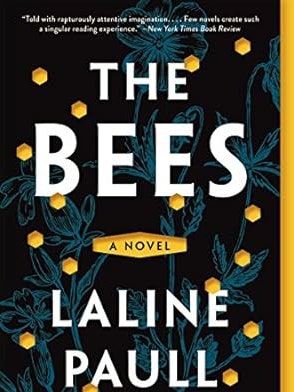
The Bees: A Novel
$17
Bookshop.org
The Bees, Laline Paull’s compulsively readable novel set in a beehive, is a bit of a wildcard. I know it will divide people. It tells the story of Flora, a lowly sanitation worker bee, who uncovers a dark secret at the heart of her hive. The social hierarchy is unbending, but Flora knows she is destined for something greater, even though this puts her at odds with her superiors. There is no speech, everyone communicates by pheromones, and Tarantino-esque levels of danger and violence are never far away. Wildly inventive, written with great dramatic flair and ultimately a strong ecological message that will stay with you, your book club will either love it or loathe it, and you’ll have fun finding out which. —Kate Slotover, host of The Book Club Review podcast
The Book of Night Women by Marlon James
The Book of Night Women by Marlon James is so uniquely devastating, it's ideal to have a support system in the form of a book club to read with. Exploring the particularly cruel form of slavery that existed on Jamaican sugar plantations, James brings up thorny issues of consent, desire, love, class, and power without resorting to clichés, presenting a story of such depth and humanity that you'll want to spend hours picking apart the nuances even as you recover emotionally from this wrenching read. —B.P.
Evicted by Matthew Desmond
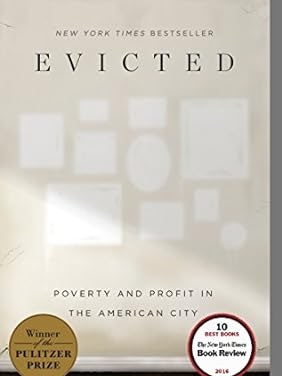
Evicted
$19
Bookshop.org
After hearing the low-grade but long-running buzz about how amazing this book was, I “made” my book club read it. It falls into the category of something I would never pick up on my own, and needed a bit of peer pressure to complete. But I was so glad I did. For those of us who have never confronted the trauma of eviction, it can seem like one of those problems on the periphery. But by deeply embedding himself with his subjects, Desmond shows how thoroughly housing insecurity is entwined with all other corollary effects of poverty. If you don’t have a reliable place to call home (to send mail, to register for school, etc., etc.), it is almost impossible to obtain the modicum of stability that is necessary to begin to escape poverty. This is an incredibly sobering text that reads like a novel. It shook our book club, and years later I still think about it. —Chloe Schama
Fleishman Is in Trouble by Taffy Brodesser-Akner
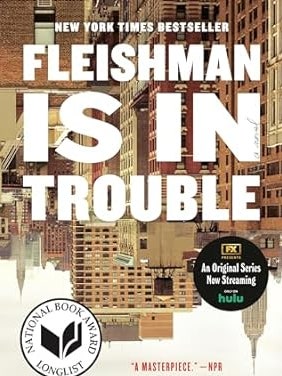
Fleishman Is in Trouble
$17
Bookshop.org
My book club read this book for one of (maybe the) last gatherings before the pandemic, and when I polled my books club members about their favorites, this one was nominated. (Full disclosure: We are a group of New York City women who undoubtedly share some zip codes with Brodesser-Akner’s characters.) This is one of those books that puts its finger very precisely and somewhat uncomfortably on the material concerns of a certain milieu. Did it cut close to home? It certainly made for a good discussion. —C.S.
Free: Coming of Age at the End of History by Lea Ypi
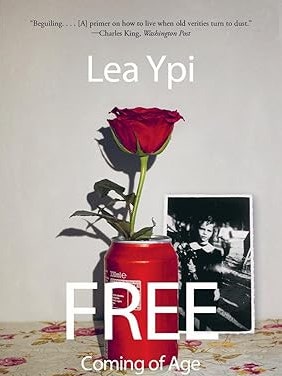
Free: Coming of Age at the End of History
$18
Bookshop.org
Another can’t-fail book club choice is Free, Lea Ypi’s memoir of her childhood in Albania, a country ruled by the hardline Communist party and largely closed to the countries beyond its borders. Everything changed once Albania opened up to the West in the late 1980s, and Ypi was finally able to understand the truth behind lies she had been brought up with all her life. Today Ypi is a Professor of Political Theory at the London School of Economics, and reading her story you understand why, for her, politics and economics could never be abstract—she shows the dramatic way in which they affected a whole nation of people, and some of the good that was lost along with the bad. It’s a fantastic book, vivid, relatable and surprisingly enjoyable, despite the fact that there is some heartbreaking material contained within. It will lead to rich discussions afterwards, I guarantee it. (Also-ran: Border by Kapka Kassabova.) —K.S.
Help Wanted by Adelle Waldman
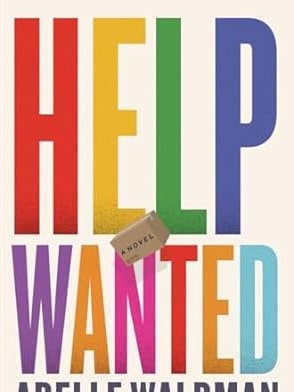
Help Wanted
$29
Bookshop.org
Many a 20-something Brooklyn dweller saw themselves reflected in Adelle Waldman’s debut novel, The Love Affairs of Nathanial P. That is likely not true of her second novel, which is set in a big box store, but has none of the voyeuristic distance that the premise might imply. This is a caper told with such sensitivity and nuance that it might just alter the way you think of the workplace novel. Set against the ruins (or triumphs?) of late-stage capitalism, Help Wanted gave my book club a huge amount to chew over in terms of—and this isn’t much of an overstatement!—what America is. All that, and it’s a great read that every member of my group finished. (While we have the best of intents, but I can’t recall the last time that happened.) —C.S.
How I Won a Nobel Prize by Julius Taranto
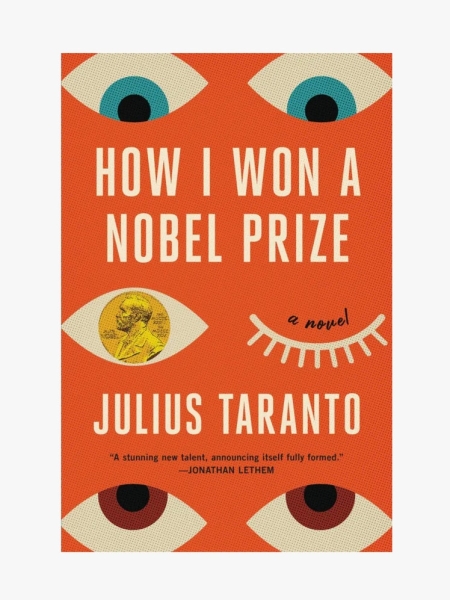
How I Won a Nobel Prize
$27
Bookshop
Sometimes you read something new and immediately think how brilliant it would be for book club. How I Won a Nobel Prize by Julius Taranto has all the hallmarks of a book that will set sparks flying, an of-the-moment campus novel that deftly explores moral relativism. The protagonist is Helen, a brilliant physicist working on superconductors, who is forced to move to a new academic institution brought into existence by a reclusive billionaire (his face smoothed away by wealth) that exists to provide a haven for academics and cultural figures who have been “canceled” elsewhere. Unwillingly along for the ride is Helen’s partner, Hew, who disapproves of the whole enterprise. Enjoy the fascinating and surprisingly accessible dive into theoretical physics, appreciate the accumulating tension of the psychological drama, and laugh out loud at the one-liners. (Also-ran: When We Cease to Understand the World by Benjamin Labatut, trans. Adrian Nathan West.) —K.S.
How to Talk About Books You Haven’t Read by Pierre Bayard
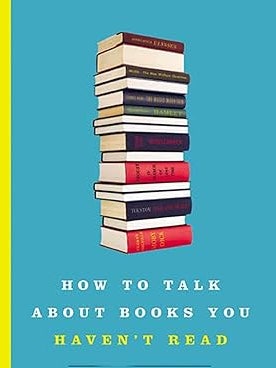
How to Talk about Books You Haven't Read
$37
Amazon
The more serious you and your book club become about reading, the more hopeless you may end up feeling about all the books you will never, even with the best of intentions, have time for. How to Talk About Books you Haven’t Read by Pierre Bayard will make you feel much better about this and, indeed, let you beautifully off the hook if you haven’t managed to finish your book club read in time. That’s ok, you can skim, flip through, read the end, or even just hold the book, unopened in your hands, all are fine with Bayard and he makes a compelling case for why you might be better able to discuss the book if you haven’t actually read it. Although Bayard’s credentials as a reader and academic are serious, his book is delightfully mischievous and funny. Give it a try and see if you agree with him or not. You might want to adopt his notation system for future reference: UB: book unknown to me; SB: book I have skimmed; HB: book I have heard about; and FB: book I have forgotten. —K.S.
Invisible Child by Andrea Elliott
Invisible Child by Andrea Elliott should be required reading for every New Yorker, as it details, with extraordinary compassion and acuity, a side of the city not often written about or shown. In a monumental feat of immersive journalism, Andrea Elliott spends years with a Black unhoused family, and the reader comes to know them like their own family. It's a book with the power to change the way you see the world, and what better way to experience that than with others in conversation. —Davi Marra, co-owner, Lofty Pigeon Books
The Invisible Life of Addie LaRue by V. E. Schwab
The Invisible Life of Addie LaRue by V. E. Schwab vibrates with beautiful melancholy. In eighteenth-century France, Addie makes a Faustian bargain to live forever, but she is cursed to be forgotten by everyone she meets. The book goes back and forth in time between the first desperate days of her curse and present-day New York where she's figured out how to push up against its limits and carve out a life—until one day, everything changes. Like the show Russian Doll, the book similarly sparks an intense interest to pick apart the nuances of the plot and the decisions of the main character and to consider what you'd do in her unique circumstances. —B.P.
Little Library cookbooks by Kate Young
A tangential thought: If you like to gather friends and serve food at your book club Kate Young’s fabulous series of Little Library cookbooks may be the literary inspiration you need. From a Sebastian-Flyte inspired picnic to a loving recreation of Babette’s Feast (minus the turtle), Young offers a go-to list of crowd pleasers drawing on her expertise as a cook and as a lifelong reader. Pick a recipe: try the Väserbottenostpaj (Swedish cheese tart) inspired by The Summer Book by Tove Jansson, read the text, share the meal, and discuss; the perfect recipe for book club. —K.S.
Loved and Missed by Susie Boyt
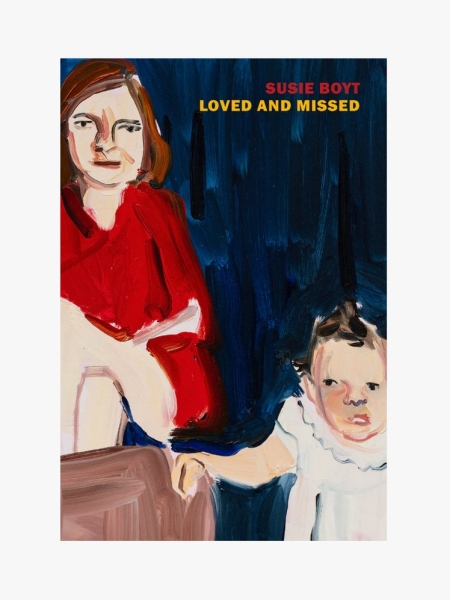
Loved and Missed
$18
Bookshop
It’s no secret that I adore this book, but I promise I wasn’t just seeking new opportunities to plug it when I put it on this list. This nomination comes via my very own book club. When I asked the group chat what book from our readings stayed with them, this was the first response that came back. This delightful little novel (that is immense in its emotional scope) is the kind of quiet-seeming book that might pass you by. But our conversation ranged widely when we discussed it, and while everyone had quite a strong response, the reactions varied and brought up all kinds of questions about parenting, emotional inheritance, and familial responsibility. I have said it before, but this is a really stunning read. —C.S.
The Master and Margarita by Mikhail Bulgakov
The Master and Margarita by Mikhail Bulgakov is one of those books where its history is just as interesting to discuss as its contents. A too-often-overlooked classic of Russian literature, it presented such a devastating send-up of the Soviet regime that it couldn’t be published until after the author’s death. It's also uproariously funny, original, and weird, so you feel both like you're reading capital L Literature but also having a grand old time. The devil and his entourage visit Moscow, and Soviet Russia and generations of readers were never the same again. —B.P.
Middlemarch by George Eliot
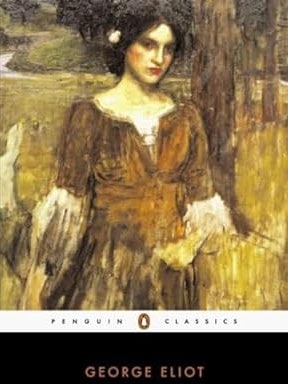
Middlemarch
$8
Bookshop.org
In the depths of COVID winter my best friend, her sister, her dad and I started a book club and kicked it off with Middlemarch. It changed my life! I read the book and listened to the audio book and fell in love with Dorothea and felt I’d moved to the Midlands for a couple of months. I bought the book in January 2021 and the manager at Shakespeare and Co. told me, masked, “I wish it was the middle of March, then we’d have a vaccine available.” Thanks to George Eliot, the next two months flew by and soon enough it was mid-March. —Chloe Malle
A Month in the Country by J.L. Carr
Book club can be just the nudge you need to read a classic from the past. A Month in the Country by J.L. Carr is a slim little novel that was recommended to me by a friend who cited it as his all-time favorite read. It tells the story of Tom Birkin, a traumatized World War I veteran who takes a job in a tiny village in the North of England restoring a medieval mural in the parish church. Over the course of the summer, he comes to know the locals and one other interloper, a young archaeologist excavating a field. Not much happens as slowly, slowly the mural is revealed, and yet Carr’s prose is weaving its spell. At the end you will find yourself reflecting on the nature of time and lived experience and with any luck come away with something that you will carry in your heart for the rest of your days. But at the very least there’s plenty to be charmed by and discuss. Richard Osman says he’s never met a person who didn’t love it! If you buy the Penguin modern classic edition you get the double whammy of the perfect introduction by Penelope Fitzgerald. (Also-ran: The Blue Flower by Penelope Fitzgerald.) —K.S.
Random Family by Adrien Nicole LeBlanc
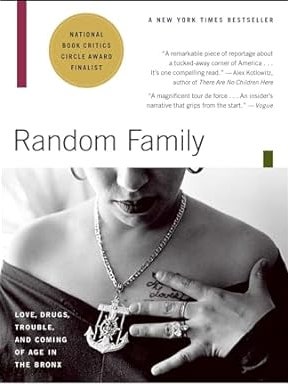
Random Family: Love, Drugs, Trouble, and Coming of Age in the Bronx
$12
Amazon
This was another book where the lore preceded my book club’s reading—and probably would have influenced it were the book anything less than a truly astounding tour de force. I first read it about 10 years after it came out, but two decades later, I am sure it still holds up as one of the most amazing feats of embedded journalism. (Davi’s excellent pick, above, Andrea Elliot’s amazing Invisible Child, is a definite heir to the approach.) Another work of non-fiction that is every bit as compelling as a novel, it was a harsh but rewarding read that left us with tons to talk about. —C.S.
Say Nothing by Patrick Radden Keefe
Say Nothing by Patrick Radden Keefe is one of the many deeply human stories to be told about the Irish Troubles. It reads like a thriller and culminates in the probable resolution of a decades-long mystery about the identity of the people who kidnapped and murdered a mother of 10 accused of passing sensitive information on to the British. It’s an extraordinary piece of journalism that raises as many questions as it answers, and therefore it’s the perfect pick for a nonfiction book club. —Davi Marra, co-owner, Lofty Pigeon Books
Six Four by Hideo Yokoyama
Six Four by Hideo Yokoyama is an extraordinary thriller steeped in a genuine sense of mystery and suspense. Readers are rewarded with a fascinating deep dive into Japanese journalism and policing, all while an urgent procedural unfolds to locate a killer who may be related to a cold case that haunts the novel’s protagonists. Whether you picked up on or missed the clues which point to the unforgettable climax, you absolutely must talk to somebody else who read the book as soon as you finish. —D.M.
Strangers to Ourselves: Unsettled Minds and the Stories That Make Us by Rachel Aviv
Sometimes a book club is all about the text, and sometimes it’s all about what people are bringing to it. This book, which has plenty to discuss between its covers, fell into the latter category when my group discussed it. The book is, loosely, an examination of the mental health industry, and in the opening essay, Aviv, a New Yorker journalist, discloses her own experience being deemed the youngest anorexia patient in America at the age of six—a diagnosis that was partly about a certain kind of medicine, but also about labels and stories, as is so much of the class of care that falls under mental health. Read this one to question the way we interact, categorize, and deal with people whose neurology isn’t quite “normal,” and also to (maybe) learn things about your fellow book club members that you never knew. —C.S.
Super Infinite by Katherine Rundell
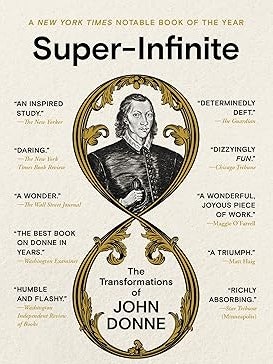
Super-Infinite: The Transformations of John Donne
$19
Bookshop.org
Non-fiction can be great for book club, with the caveat that ideally you want a page-turner. (Our book club is still reeling from the time we attempted Adam Feinstein’s exhaustive biography of Pablo Neruda.) With this in mind I recommend Super Infinite, Katherine Rundell’s prize-winning biography of the poet John Donne. The lines of poetry themselves might not immediately light you up, but Rundell’s analysis will, and to read this book is to walk with her through time. (If you’ve ever read Helene Hanff’s 84 Charing Cross Road—a book club classic, by the way—and wondered why she was so obsessed with Donne’s sermons, this will put that mystery to rest.) Super Infinite is a fantastic read and made for brilliant book club discussion. If you try it I’d encourage you to go a step further and get everyone to bring a poem they love to share. Trust me, good things will come of this. (Also-rans: The Poetry Pharmacy by William Sieghart, Ghost in the Throat by Doireann Ní Ghríofa, and Pearl by Sian Hughes.) —K.S.
Tomorrow, and Tomorrow, and Tomorrow by Gabrielle Zevin
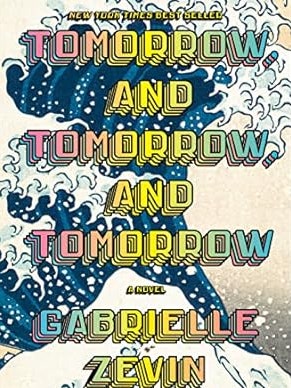
Tomorrow, and Tomorrow, and Tomorrow
$19
Bookshop.org
I ran my post-college book club like a little tyrant, and if it had lasted longer than two books I certainly would’ve made everyone read Tomorrow, and Tomorrow, and Tomorrow by Gabrielle Zevin. Coming in at 400-plus pages, it appears intimidating, but Zevin’s vivid writing and gripping storytelling had me totally spellbound. Tomorrow seems like it was engineered to be a book club read—squabbling over the polarizing main characters, Sam and Sadie, is the perfect low-stakes book-club fodder. —Hannah Jackson
The Vegetarian by Han Kang
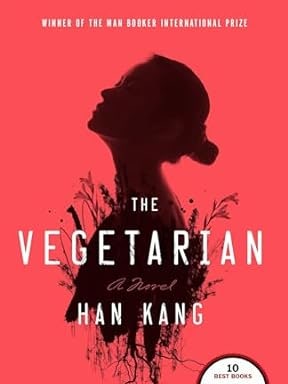
The Vegetarian
$17
Bookshop.org
One of the first books we ever read for the show was a fantastic book club read: The Vegetarian by Han Kang (trans. Deborah Smith). Winner of the 2016 International Booker Prize, this is a psychologically intense short novel structured in three parts. The protagonist, Yeong-Hye, is a young woman who decides she will stop eating meat, without reckoning on the lengths her family will go to in order to get her to conform to South Korean social norms. Beautifully written, surprisingly erotic and ultimately quite strange (but in a good way), this is a novel guaranteed to provoke questions. (A side-benefit of reading any Booker shortlisted novel is that you can avail yourself of the excellent reading guides and extra material on the Booker website, a boon to those who like to have plenty of background.) (Also-rans: The Memory Police by Yoko Ogawa and Love by Hanne Orstavik.) —K.S.
A Woman in the Polar Night by Christiane Ritter
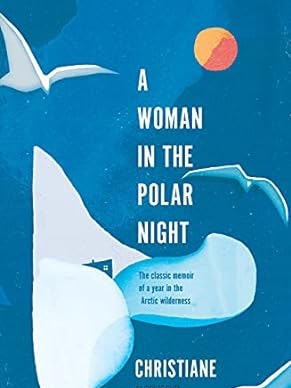
A Woman In the Polar Night
$20
Bookshop.org
One of our favorite discoveries on the pod was A Woman in the Polar Night by Christiane Ritter (trans. Jane Degras). In 1934 Ritter joined her fur-trapper husband to spend the winter living in an isolated hut on Spitzbergen, a remote island north of Norway. She had hoped it would be an opportunity to “read thick books in the remote quiet and, not least, sleep to my heart’s content” —and who doesn’t want to do that, but of course life rarely works out as we expect it to. Funny, dry and relatable, it’s impossible not to be charmed by Ritter, or to share her dismay in discovering that there will be another, previously unknown to her, man sharing their cramped living quarters. Read it for the sense of adventure, the beauty of the Arctic, and the profound appreciation of regeneration and rebirth once the sun returns. Discuss Ritter’s extraordinary talent, and collectively lament the fact that she never wrote another book. —K.S.

